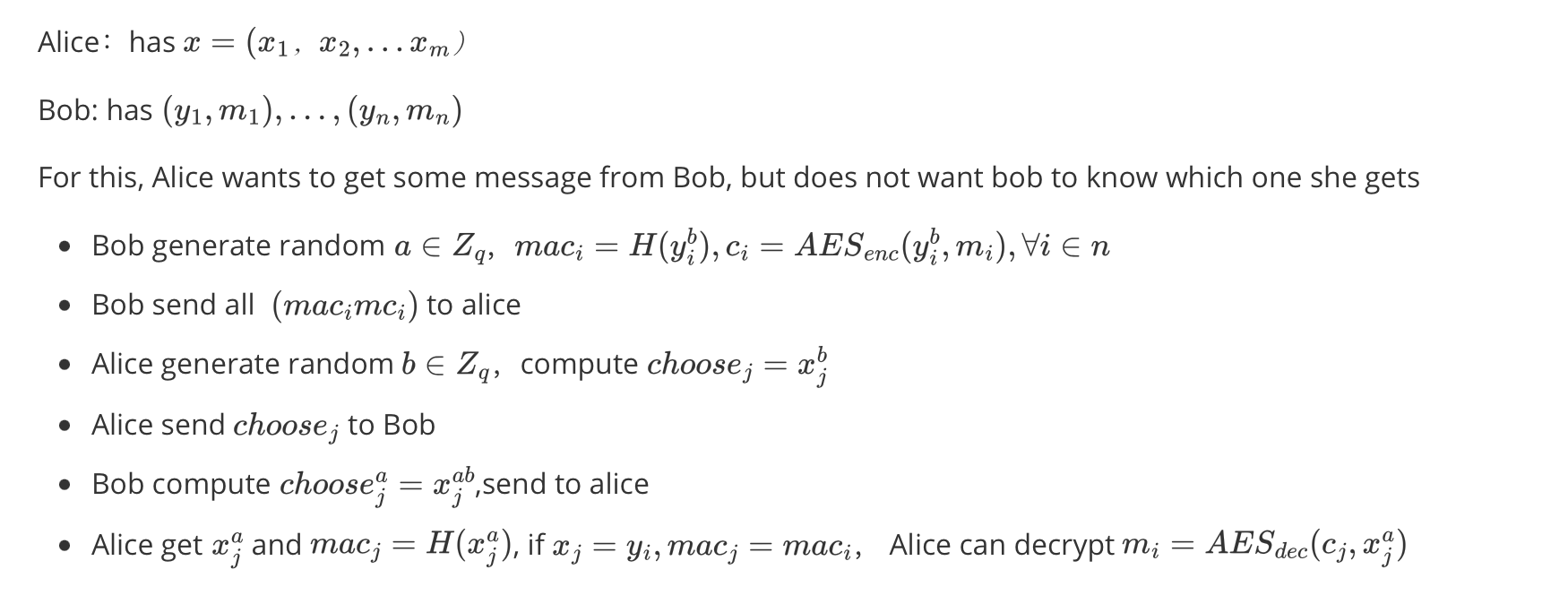Alice:has $x=(x_1,x_2,...x_m)$$x=(x_1,x_2,...x_m)$
Bob: has $(y_1,m_1),...,(y_n,m_n)$
For this, Alice wants to get some message from Bob, but does not want bob to know which one she gets
- Bob generate random $a \in Z_q$,$cid_i=H(y_i^b),c_i=AES_{enc}(y_i^b, m_i),\forall i \in n$
- Bob send all $(cid_i,c_i)$ to alice
- Alice generate random $b \in Z_q$,compute $choose_j=x_j^b$
- Alice send $choose_j$ to Bob
- Bob compute $choose_j^a=x_j^{ab}$,send to alice
- Alice get $x_j^{a}$ and $cid_j=H(x_j^a)$, if $x_j=y_i, cid_j=cid_i$, Alice can decrypt $m_i=AES_{dec}(c_j,x_j^a)$
Is this approach secure, or do I need to introduce additional constraints?
Moreover, can I incorporate the OPRF portion from RA2018 or KKRT, in which Bob shares the appropriate key with Alice in this manner, while Alice only obtains the information she can query for? For example, if Alice queries for x1 and x2, she won't receive anything beyond m1 and m2

